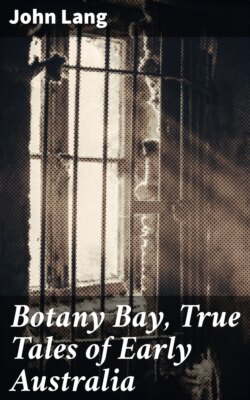Читать книгу Botany Bay, True Tales of Early Australia - Lang John - Страница 12
На сайте Литреса книга снята с продажи.
CHAPTER IX.
ОглавлениеTable of Contents
The anxiously looked-for day of trial came. The court was crowded with persons in every grade of society, from the highest to the very lowest. Mr. Smith stood in the dock as firmly and as composedly as though he had been arraigned for a mere libel, or a common assault--the penalty of conviction not exceeding a fine and a few months' imprisonment.
The case was opened by the Attorney-General with the greatest fairness imaginable, and when the witnesses gave their evidence (Weir, Hamilton, Williams and Mr. Cox) everyone appeared to hold his breath. Smith, who defended himself, cross-examined them all with wonderful tact and ability; and, at the conclusion of the case for the prosecution, addressed the jury at considerable length and with no mean amount of eloquence.
The judge then summed up. His honour was the last man in the world to believe in supernatural appearances; but with the ability and fairness that characterised his career in the colony, he weighted the probabilities and improbabilities with the greatest nicety. To detail all the points taken by the judge would be tedious; but if his charge had any leaning one way or other it was in favour of the prisoner.
The jury in those days was not composed of the people, but of military officers belonging to the regiment quartered in the colony. These gentlemen, in ordinary cases, did not give much of their minds to the point at issue. Some of them usually threw themselves back and shut their eyes--not to think, but "nod." Others whispered to each other--not about the guilt or innocence of the prisoner at the bar, but about their own affairs; whilst those who had any talent for drawing exercised it by sketching the scene or taking the likeness of the prisoner, the witnesses, the counsel, the sheriff and the judge. But in this case they seemingly devoted all their energies, in order to enable them to arrive at the truth. To every word that fell from the judge during his charge, which lasted over two hours, they listened with breathless attention, and when it was concluded they requested permission to retire to consider their verdict. This was at half--past five in the afternoon of Friday, and not until a quarter to eleven did the jury return into court and retake their places in the box.
The excitement that prevailed was intense, and when the murmurs in the crowd, so common upon such occasions, had subsided, amidst awful stillness the prothonotary put that all-momentous question, "Gentlemen of the jury, what say you? Is the prisoner at the bar guilty, or not guilty?"
With a firm, clear voice, the foreman--a captain in the army--uttered the word "GUILTY!"
Murmurs of applause from some, and of disapprobation from others, instantly resounded through the hall of Justice. From the reluctant manner in which the judge put the black cap upon his head, it was evident that he was not altogether satisfied with the finding of the jury. He had, however, no alternative; and in the usual formal manner he sentenced the prisoner to be hanged on the following Monday morning at eight o'clock.
Smith heard the sentence without moving a single muscle or betraying any species of emotion, and left the dock with as firm a step as that which he employed when entering it. His demeanour through the trial, and after he was sentenced, brought over many who previously thought him guilty to a belief in his innocence, and a petition to the Governor to spare his life was speedily drafted and numerously signed. It was rumoured that the Chief justice who tried the case had also made a similar recommendation, and that the Governor, in deference thereto, had ordered a reprieve to be made out, but not to be delivered to the Sheriff until seven o'clock on Monday morning. It was further stated that the Governor was of opinion that the finding of the jury was a correct one. The press of the colony did not lead, but fell into, the most popular opinion, that it would be tantamount to murder to take away the life of any human being upon such evidence as that given at the trial.
